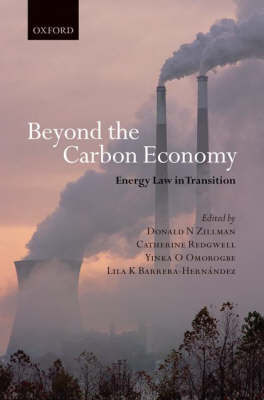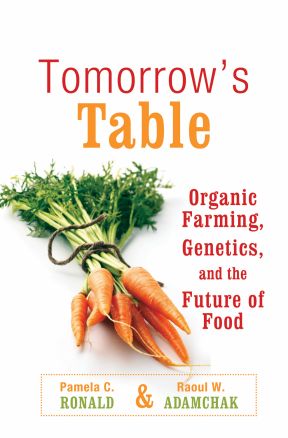some more sketches, though these are newer, from a couple of weeks ago, trying to make them more geometrical and with less details, i'd want them even simpler than these but it's difficult.
some more sketches, though these are newer, from a couple of weeks ago, trying to make them more geometrical and with less details, i'd want them even simpler than these but it's difficult.
i made this quick sketch this afternoon while one one of the students was drawing in front of her easel.
By Kirsty McHugh, OUP UK
In today’s Countdown to Copenhagen post, Donald N. Zillman looks back at predictions he and his fellow authors of Beyond the Carbon Economy: Energy Law in Transition made two years ago, and discusses what today’s position is in light of next week’s COP15 conference. Professor Zillman is President of the University of Maine at Presque Isle and Edward Godfrey Professor of Law, University of Maine at Fort Kent.
Click here for the other Countdown to Copenhagen posts.
Slightly more than two years ago, a consortium of 33 authors from 20 nations put the finishing touches on a book called Beyond the Carbon Economy. The authors were law professors, practicing lawyers, and participants in public policy in the fields of energy, natural resources, and sustainability. We noted that 80 percent of the world’s energy for all purposes came from the three familiar hydrocarbon fuels—coal, petroleum, and natural gas. Even the most radical alternative scenarios indicated that the three hydrocarbon fuels would still be major sources of world energy two decades from today. But, compelling reasons demanded that businesses, government leaders, and citizens around the world look beyond carbon, and begin NOW.
 We identified five factors compelling that redirection. The first was climate change and other environmental harms from the use of the fossil fuels. When we wrote, the April 2007 Report of the Intergovernmental Panel on Climate Change had just been released. It made the clearest case yet that climate change was real, was happening now, and that it clearly implicated the fossil fuels.
We identified five factors compelling that redirection. The first was climate change and other environmental harms from the use of the fossil fuels. When we wrote, the April 2007 Report of the Intergovernmental Panel on Climate Change had just been released. It made the clearest case yet that climate change was real, was happening now, and that it clearly implicated the fossil fuels.
The second factor was the myriad of concerns over energy security. We noted: “Were the carbon fuels equally distributed around the world, and were rules of the market economy fully accepted by both producer and consumer nations, the problem would be largely one for economics to solve.” They aren’t and wars, civil unrest, political boycotts, and the like have kept much of the world uneasy since the early 1970s.
The third factor encouraging the move beyond carbon is the enormous increase in demand for energy. China and India are just the most visible examples of nations moving rapidly to a time when a substantial proportion of their population expect personal motorized transport, fossil fuel heated residences and workplaces, and steady access to electricity.
The fourth, and most controversial of the factors, is the potential decline in supply of the fossil fuels, primarily petroleum. The authors recognized the range in views from a strong belief in “peak oil” theories to a confidence in market economics that supports the view that “nothing would increase supplies like $200 per barrel oil.” Even advocates of the latter view, however, have to deal with the heavy investment costs of bringing more fossil fuels to the market.
The fifth factor–“the most sobering of them all”– is the energy needs of the one third of the world’s population who live today without modern energy services. The carbon economy has done them few favors and the future looks even more bleak for them than the present. Even if compassion or a rough sense of equity don’t prompt action, the prospect of dozens of failed states turned to terrorist havens should.<
Pamela C. Ronald is a Professor in the Department of Plant Pathology at the University of California, Davis and the co-author with her husband Raoul Adamchak of Tomorrow’s Table: Organic Farming, Genetics, and the Future of Food which argues that a judicious blend of two important strands of agriculture–genetic engineering and organic farming–is key to helping feed the world’s growing population in an ecologically balanced manner. In the post below Ronald responds to an editorial by Paul Krugman.
“Most Americans take food for granted”, reports the New York Times in an editorial last week. I would add that we also take abundant water, vast expanses of wilderness and clean air for granted. The price of oil, global warming and skyrocketing food prices are changing the way we think about land. It is about time. Have we forgotten that land and its resources are precious? Have we forgotten how to be good stewards?
I n an editorial this week in the NYT, Paul Krugman places part of the blame on biofuels: “We need to push back against biofuels that turns out to have been a terrible mistake.” But this conclusion is premature and overly simplistic.
n an editorial this week in the NYT, Paul Krugman places part of the blame on biofuels: “We need to push back against biofuels that turns out to have been a terrible mistake.” But this conclusion is premature and overly simplistic.
Whether biofuels offer carbon savings depends on how they are produced. If we destroy rainforests and grasslands to plant food crop–based biofuels, then Kurgman is right. This is a bad idea. Such an approach would release 17 to 420 times more CO2 than the annual greenhouse gas (GHG) reductions that these biofuels would provide by displacing fossil fuels. (Fargione et al, science 2008).
In contrast, biofuels made from waste biomass or from biomass grown on degraded and abandoned agricultural lands planted with perennials (so called cellulosic biomass) incurs little or no carbon debt and can offer immediate and sustained GHG advantages. Research on cellulosic biofuels have only just begun and there are tremendous opportunities. For example, plant biologists are working towards developing new and more productive non-food crops that can be grown on marginal lands. If we triple the yield of biomass we can use 1/3 less land. If we use the most ecologically responsible farming practices available (e.g. organic farming) to produce this new crop biomass, we can reduce the environmental impacts.
Nathanael Greene in an interview with Ira Flatow on Science Friday today said we need new innovations and we need to use them smartly. That is what should be done.
An Illustrated Memoir by Ann Marie Fleming Riverhead Books / Penguin 2007 Ann Marie Fleming's great-grandfather was Long Tack Sam, one of the great international magicians of the late 19th and early 20th century. Growing up Marie had heard many casual references to her great-grandfather but there was little real information to go on. With members of her family spread across the
Nicely done! Your values are right on. Nice balance. Are you teaching the class?
thanks Sherie! I tried to work on the values too, geometry and planes. In this class, yes, I work as an assitant to the teacher. In others I teach and in others, at school, I'm a student, hahaha. Hugs!!